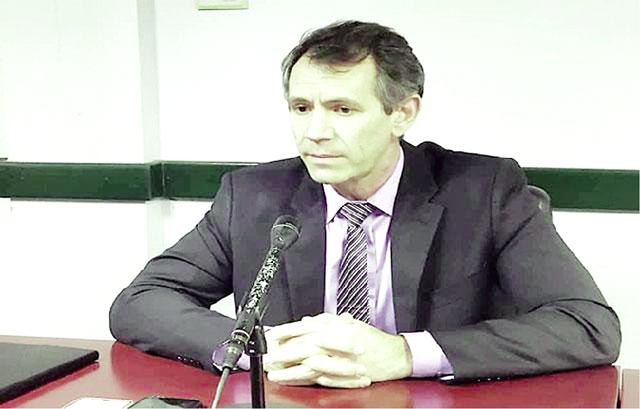Africa-Press – Eswatini. A lucrative business opportunity has been presented for consultants to undertake the thorny issue of reviewing salaries for civil servants.
Consultants have been called upon to submit competitive bids which will culminate in shortlisting and ultimately choosing the best evaluated bidder which to undertake the E15 million salary review exercise for the kingdom’s over 35 000 civil servants.
The ministry of public works has issued precise instructions to the effect that only qualified firms with a team leader with a high level of competency in the field of management sciences, with specialised training in any of the three key areas of the assignment, job evaluation, job grading and salary structure development could be considered for the multimillion task at hand. It was also stipulated that the leader must also have 10 years proven experience in leading similar projects.
The ministry pointed out that the consultant should be well capacitated in management services with at least 10 years of involvement in organisational design and compensation.
“The consultant should also have strong analytical skills and report writing with experience in research.
“The team should also be fluent in English and SiSwati and be able to work with and facilitate diverse stakeholder groups,” explained the ministry, led by Mabulala Maseko as minister.
It was stated that the evaluation would be done strictly in accordance with the Public Procurement Regulations, 2020.
“Following this process, it is the intention to invite the short listed firms to provide proposals for the requested services,” reads the expression of interest in part.
The expression of interest document can be obtained at the ministry of public service and ministry of finance building for the price of E300. Deadline for submissions will be on December 9.
Minister of Finance Neal Rijkenberg acknowledged that even though a huge amount of effort would go into reducing the exorbitant civil service wage bill, government remained very much aware of the fact that civil servants had been getting no or below-inflation cost of living adjustment recently.
He said in spite of the E1 billion reduction in the national budget, an effort had been made to accommodate Cost of Living Adjustment (CoLA) at E220 million, salary review exercise at E15 million and E55 million for appeals.
Rijkenberg mentioned that the wage bill soared at alarming rates for five years before the hiring freeze policy was implemented.
He said the accelerated increase began in 2013/14 when the wage bill increased by 13.5 per cent from E4 billion to E4.5 billion.
The minister said it increased by a further 7.5 per cent to E4.8 billion in 2014/15, another 10.7 per cent in 2015/16 to reach E5.3 billion and then a further increase by 22.5 per cent to E6.5 billion in 2016/17 due to the salary review.
In 2017/18, Rijkenberg said the wage bill grew by 6.3 per cent to reach E6.9 billion.
Over the five years from 2013 there was a total growth of 61 per cent in the wage bill.
In 2018/19, he said there was a slight reduction in the alarming growth trajectory with a relatively muted increase of 2.5 per cent settling at E7.1 billion due to the hiring freeze that was implemented.
In 2019/2020, he added that a further dampening of this trend continued with only a 0.5 per cent increase in the wage-bill. In 2020/21 automatic notching, COVID-19 hiring and the cost of living adjustment led to a further 6.5 per cent increase to E7.4 billion.
In 2021/22 the wage bill was projected to decrease to E7.3 billion, a reduction of 2.1 per cent. This was further projected to decrease in 2022/23 by 1.7 per cent.
All these numbers exclude the pension contributions.
The minister disclosed that the hiring freeze had been successful in muting the growth of the wage bill, increasing by only 3.2 per cent over the five year outlay from its implementation and resulting in an average growth of 0.64 per cent in sharp contrast to the 12 per cent average annual growth recorded in the preceding five-year period.
For More News And Analysis About Eswatini Follow Africa-Press







